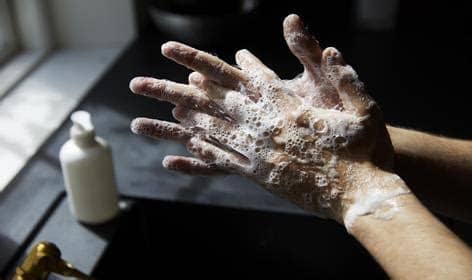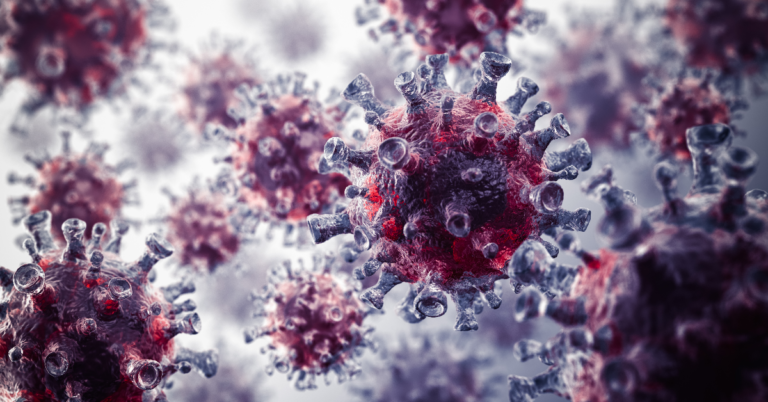In a world focused on high-tech medical interventions, we sometimes overlook the most fundamental weapon in our public health arsenal: soap and water. This seemingly simple duo holds immense power, acting as a silent guardian against a multitude of infectious diseases. This is especially crucial in settings like the Rohingya refugee camps in Bangladesh, where overcrowded conditions and limited access to clean water and sanitation facilities create a breeding ground for illness.

Beyond Cleanliness: The Science Behind Handwashing
Washing your hands with soap and water isn’t just about removing visible dirt. It’s a microscopic battle against a hidden enemy – pathogens. These disease-causing organisms, like bacteria and viruses, can cling to our hands and readily transfer to surfaces and then into our bodies when we touch our eyes, nose, or mouth.
Soap acts as a Trojan horse, tricking the fatty membranes surrounding viruses and bacteria. This disrupts their structure and weakens them, allowing water to easily wash them away, preventing them from spreading and causing infection.
The Ripple Effect: Handwashing’s Impact on Public Health, Especially in Rohingya Camps
The benefits of handwashing extend far beyond personal hygiene. It has a significant impact on public health, contributing to the reduction of a wide range of illnesses, especially critical in densely populated settings like refugee camps:
- Diarrheal diseases: Diarrhoea is a major health concern in Rohingya camps, particularly for young children. Studies have shown that regular handwashing with soap can reduce the incidence of diarrhoea by up to 50%.
- Acute respiratory infections: Handwashing can significantly reduce the spread of respiratory illnesses like the common cold, influenza, and even respiratory syncytial virus (RSV), a common childhood illness, which can be particularly dangerous in crowded living conditions.

- Skin infections: Frequent handwashing helps prevent the spread of skin infections, a common problem in areas with limited access to clean water and sanitation.
Simple Yet Powerful: Making Handwashing a Habit in Rohingya Camps and Beyond
The effectiveness of handwashing hinges on proper technique. Here are the key steps for optimal results:
- Wet your hands with clean, running water.
- Apply enough soap to create a lather.
- Rub your hands together for at least 20 seconds, ensuring you clean all surfaces, including between your fingers, under your nails, and the backs of your hands.
- Rinse thoroughly with clean, running water.
- Dry your hands completely with a clean towel or air dryer.
Beyond Handwashing: Expanding the Hygiene Arsenal in Rohingya Camps
While handwashing is the cornerstone of good hygiene, here are some additional tips to bolster defences, especially in resource-limited settings like Rohingya camps:
- Promote handwashing with ash or local alternatives when soap and water are scarce.
- Advocate for the installation of more handwashing stations in key locations throughout the camps.
- Educate camp residents on the importance of hygiene practices through culturally appropriate campaigns.
Champions of Clean Hands
Handwashing is a simple act with a profound impact, especially in vulnerable communities like those in the Rohingya camps. By making handwashing a priority and advocating for hygiene education, we can empower individuals and communities to protect themselves and each other from preventable illnesses. Parents, teachers, healthcare professionals, and community leaders can all play a vital role in promoting this life-saving practice.
Here are some additional ideas to make handwashing promotion more engaging:
- Organize handwashing awareness campaigns in collaboration with local NGOs and community leaders.
- Install accessible and culturally appropriate handwashing stations in public places.
- Develop creative educational materials and games for children to learn about hand hygiene in their native language.
- Celebrate Global Handwashing Day (August 15th) with educational events and community outreach programs in the camps.
Soap and water might seem like humble tools, but they are powerful weapons in the fight against infectious diseases, especially in vulnerable settings like Rohingya camps. By promoting handwashing and good hygiene practices, we can create a healthier world, one clean hand at a time. Let’s remember, that the power to save lives often lies in our simplest actions.
Reference:
- United Nations Children’s Fund (UNICEF). Water, Sanitation and Hygiene (WASH). Water, Sanitation and Hygiene (WASH) | UNICEF
- Centres for Disease Control and Prevention (CDC). Hygiene-related Diseases. Hygiene-related Diseases | CDC
- World Health Organization (WHO). Hygiene Promotion in Emergencies. Home – Hygiene Promotion in Emergencies (emergency-wash.org)




[…] The Power of Hygiene: Rohingya Camps & Beyond […]
[…] The Power of Hygiene: Rohingya Camps & Beyond […]